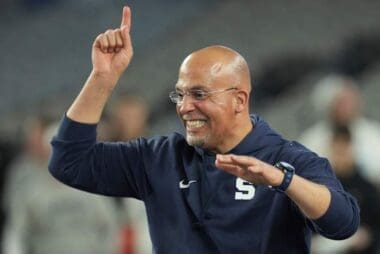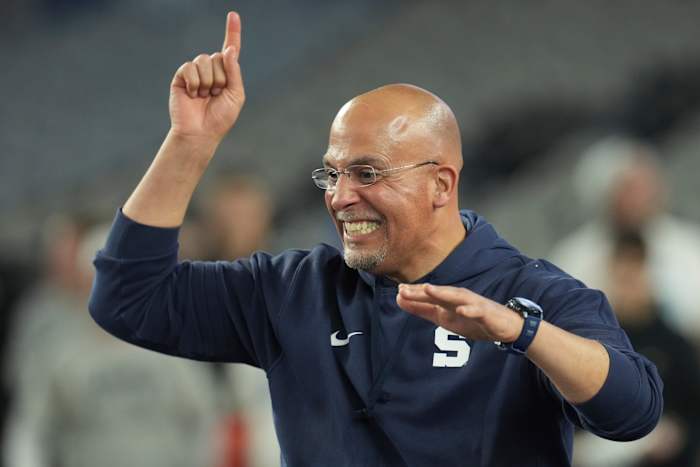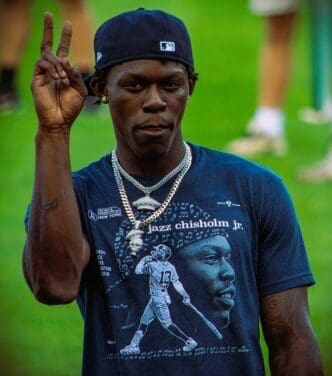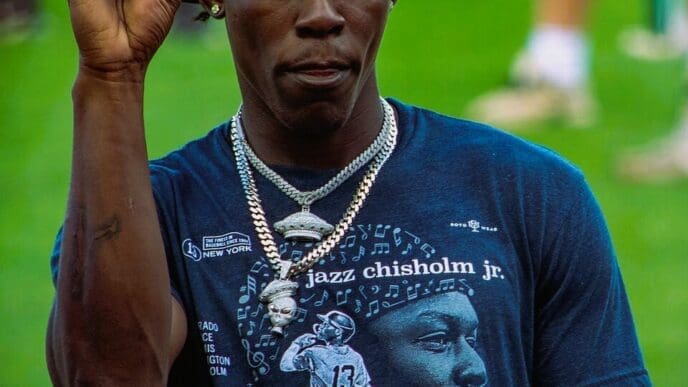In a pivotal moment for college football, January 2025 marks an era where Black coaches are on the brink of making history. Either Penn State’s James Franklin or Notre Dame’s Marcus Freeman stands a chance to become the first Black head coach to win a national championship in college football. This potential achievement is momentous, coming generations after similar barriers were broken in college basketball.
The journey of Black coaches making their mark in college football has been long and challenging. While college basketball saw John Thompson lead Georgetown to victory in 1984, becoming the first of four Black coaches to win a national title, college football has lagged behind by over four decades. As the college football playoffs approach, either James Franklin or Marcus Freeman could finally shatter this long-standing barrier. Their success would echo Tony Dungy’s accomplishment in the NFL, who in 2007 became the first Black coach to win a Super Bowl. The trend showcases a pressing need for diversified hiring across sports.
Richard Lapchick, founder of The Institute for Diversity and Ethics in Sport, highlights the lengthy journey that educators like Franklin and Freeman have faced in a predominantly white profession. “The fact that we’re celebrating this — it is 2025,” he says, emphasizing the overdue recognition for diverse leadership in sports. Until now, only 16 of the 134 head coaching positions in college football’s highest division are held by Black coaches, illustrating the slow progress in diversity.
Both Franklin and Freeman have benefited from connections and mentorship within the industry. Franklin recalls the significance of witnessing Dungy’s groundbreaking role when he was an offensive coordinator at Kansas State, working under Ron Prince, one of the few Black coaches at the time. Although progress in diversity among player rosters has been more noticeable, with TIDES reporting 52.1% of players in college football as Black, coaching ratios lag behind. Franklin and Freeman both belong to a minority group representing only 11.9% of head coaches in their field.
Marcus Freeman’s path reflects a blend of skill and strategic connections. His career began at Ohio State, where Darrell Hazell, a Black assistant, played a pivotal role in his early development. Freeman’s career trajectory—aided by mentors like Hazell and later coaches such as Luke Fickell—underscores how influential networks can propel capable individuals to leadership roles, despite racial hurdles. He views his role not only as a personal achievement but as a symbol for others who identify with him.
Sean Frazier, Northern Illinois’ athletic director, comments on the unique head start basketball coaches had, attributing this to greater numbers of schools and pioneering mentors like John Chaney and Nolan Richardson. Racial diversity among coaches, however, remains limited despite programs like the NCAA’s Coaches Academies intended to cultivate potential leaders in sports. Observers are keen to see if football will embrace systemic changes similar to the NFL’s sustained diversity efforts.
While both Franklin and Freeman’s stories might illustrate rarities, they bring focus to the larger conversation on underrepresentation in sports leadership. Frazier asserts that changes are needed at an institutional level, emphasizing Colorado’s hiring of Deion Sanders as a prime example of a successful Black coach connecting with Black players. This relationship fosters not only brotherhood but also influences on-field success and revenue generation. “When I talk to my colleagues in the NFL and the NBA, it is inherently a business decision to put head coaches of color in senior-level roles,” Frazier noted, urging a strategic shift within collegiate sports hiring practices.
This discussion comes at a time when new professional models, such as Name, Image, and Likeness deals (NIL), are driving college sports towards a professional framework where the value of representation in coaching is increasingly recognized.
As college football inches closer to possibly crowning its first Black head coach champion, the sports community is reminded of the importance of diverse representation. The anticipated achievements by coaches Franklin and Freeman not only highlight the gaps that still exist but also offer a vision for a more inclusive future in collegiate sports. Their impending success is a testament to persistence and excellence, echoing the urgency for continued progress in diversity and inclusion.
Source: News4jax














